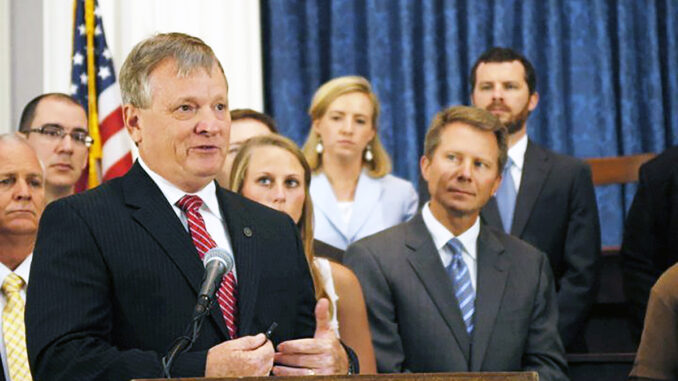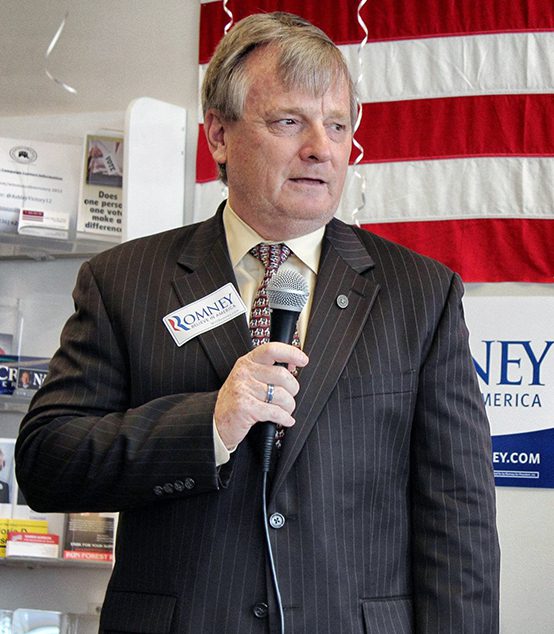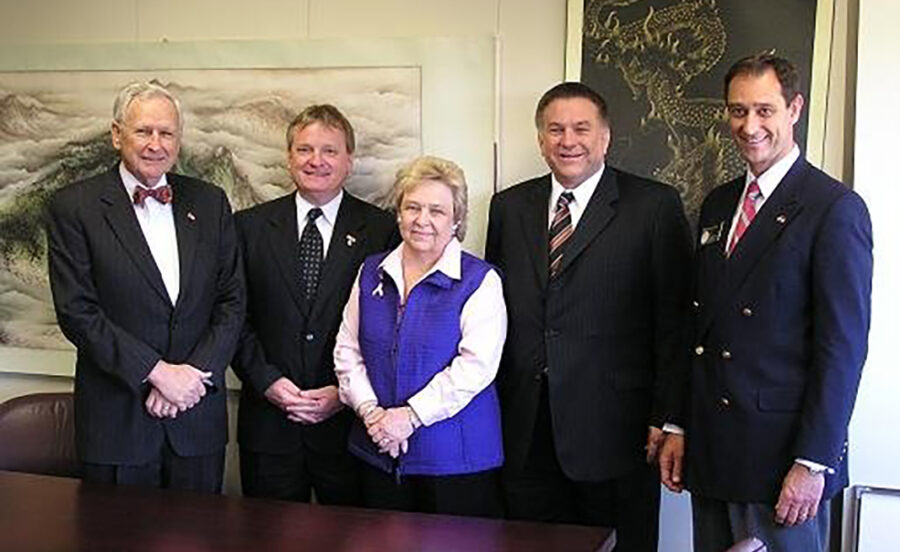
This is the third story in a five-week series on the life and career of outgoing North Carolina Treasurer Dale Folwell. Read Part 1 and Part 2.
RALEIGH —North Carolina State Treasurer Dale Folwell had worked myriad blue-collar jobs, made his way through college and remarkably aced his CPA exam. None had been easy, and Folwell’s next venture — into politics — proved just as difficult.
Folwell said he dipped his toe into the public realm with an unconventional suggestion for the Winston-Salem City Council on how it could save money.

“So it’s kind of upside down, but I’d recommend to the City Council that they spend more money — which is not what you hear conservatives say — to buy more police cars so that the police officers could drive them home,” said Folwell. “Because we were losing about 12% of the shift time every day due to people transferring their gear from one police car to another as they were going on and off shifts.
“That was my first opportunity about problem-solving in public service.”
His interest and involvement led to others having an interest in Folwell running for office, which he did in the late 1980s.
“I ran for City Council against Larry Womble,” Folwell said. “Lost by 74 votes. I was 28 years old.”
Folwell did, however, later get appointed to the county’s school board, where he spent eight years (1993-2000) before moving into state politics.
Fowlell said his run for a seat in the North Carolina House of Representatives in 2004 was about “saving lives, saving minds and saving money.”
He received 62.9% of the votes in the 74th District race, defeating Democrat Tom Brandon to succeed Linda P. Johnson, who had been redistricted to the 83rd District.
Once in office, Folwell passed significant legislation while maintaining a conservative ranking through his four terms in the statehouse (2005-2013) despite Democrats occupying leadership positions at the legislature and in the Executive Mansion.
“When I came to Raleigh, I was in the minority party for six years,” said Folwell.
Despite Democratic Govs. Bev Perdue and Mike Easley and the House being held by the opposing party, Folwell said he had 29 pieces of legislation make their way to law without a veto.
He again credited hard work with helping him persevere.

“If you’re coming to Raleigh to be half-ass, what does that say about those things you love?” Folwell said. “So I felt like that while I’m here and when I was here, I needed to respect those individuals — my family — and work as hard as I possibly could.”
Folwell’s knack for tackling broken systems and improving efficiency in the past made its way to public service.
As Assistant Secretary of Commerce over the Division of Employment Security (DES) for Gov. Pat McCrory from 2013-15, Folwell said he worked on fixing the state’s unemployment system.
“We sucked,” Folwell said bluntly. “We paid money to people who didn’t deserve it and we couldn’t get money to people who did during the great financial crisis. Plus we had about $2.6 billion in debt — (the state was) paying hundreds of millions of dollars of interest.
“People talk about the turnaround in that system: paid off $2.7 billion in debt and built a billion-dollar surplus in 31 months. Which turned into a $4 billion surplus as we entered into COVID.”
He said some of the best ideas over the years to make agencies he led more efficient came not from him but from the employees.
“What no one ever talks about is the ‘truth’ part of the success of that turnaround story,” Folwell said.
He said he empowered state employees, who in turn “had fantastic ideas about how to reform this system.”
One fix came from a temporary employee at DES who said it made no sense why the agency was paying out claims before they had received the corresponding verification from employers.
Folwell said he later discovered DES had tens of thousands of current claims that fell into that category and “hundreds of thousands, if not millions, of dollars” in the previous year’s applications that had been marked “LOW,” which stands for “lack of work.”
“As soon as that LOW hit this system, it would automatically be adjudicated,” said Folwell in a frustrated tone. “Where they were making tens of thousands of dollars a year by being on unemployment, and by the time it actually caught up with them because of the backlogs, it’d be past the two years.”
Folwell also recalled working to improve DES’s call center, which he said at the time had a quality score behind Guam and Puerto Rico. He said at the start of every meeting he would put his cell phone on speaker while calling the call center “because it took me four months to get my phone call answered. It never answered.”
Even today, Folwell is still bothered by the inefficiency.
“You see that I’m getting a little more animated about this because I like fixing things,” he said. “I’m a mechanic and I like saving money, and that’s why all of this has been so important to me.”


